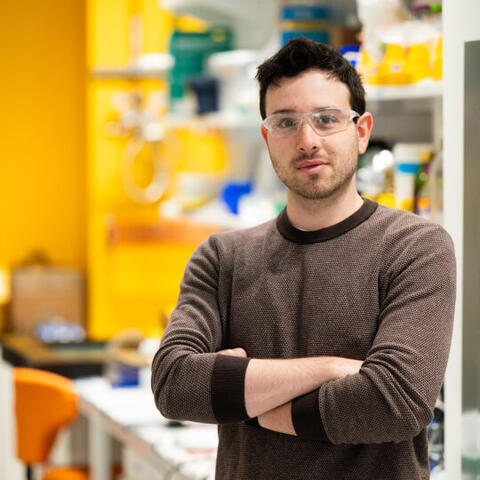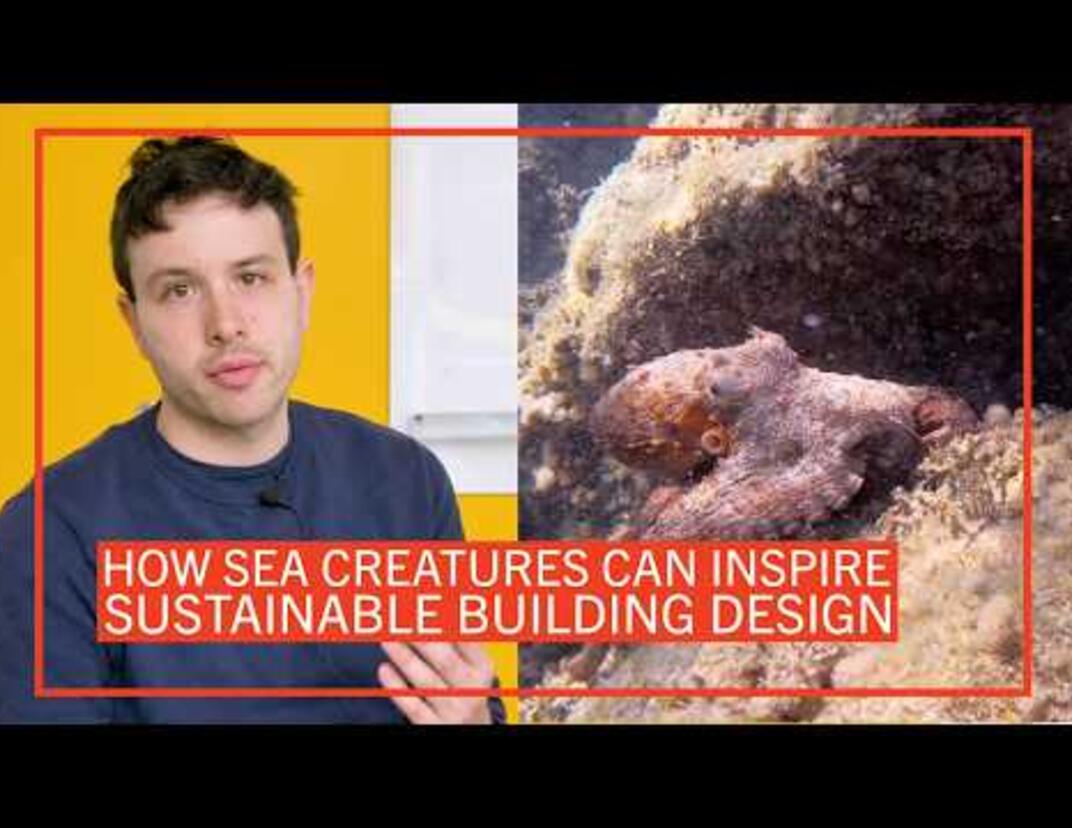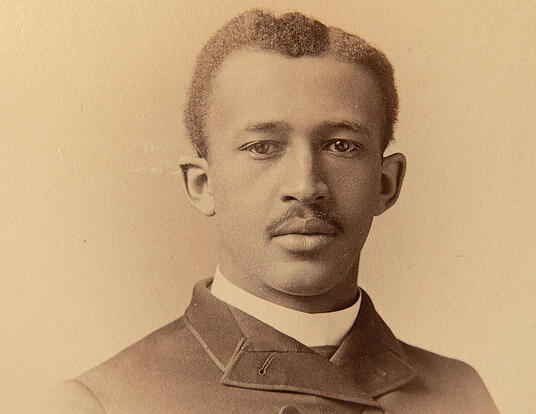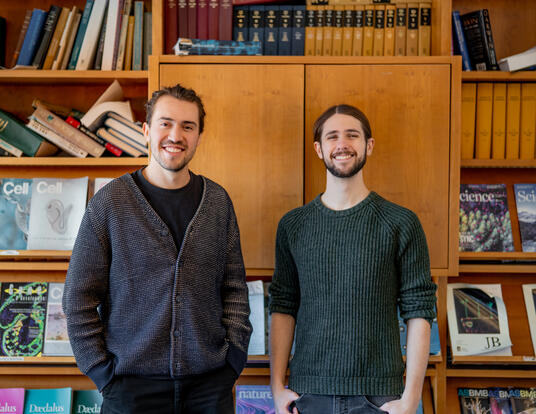Of Mice and Moms
Ya’el Courtney, PhD Student
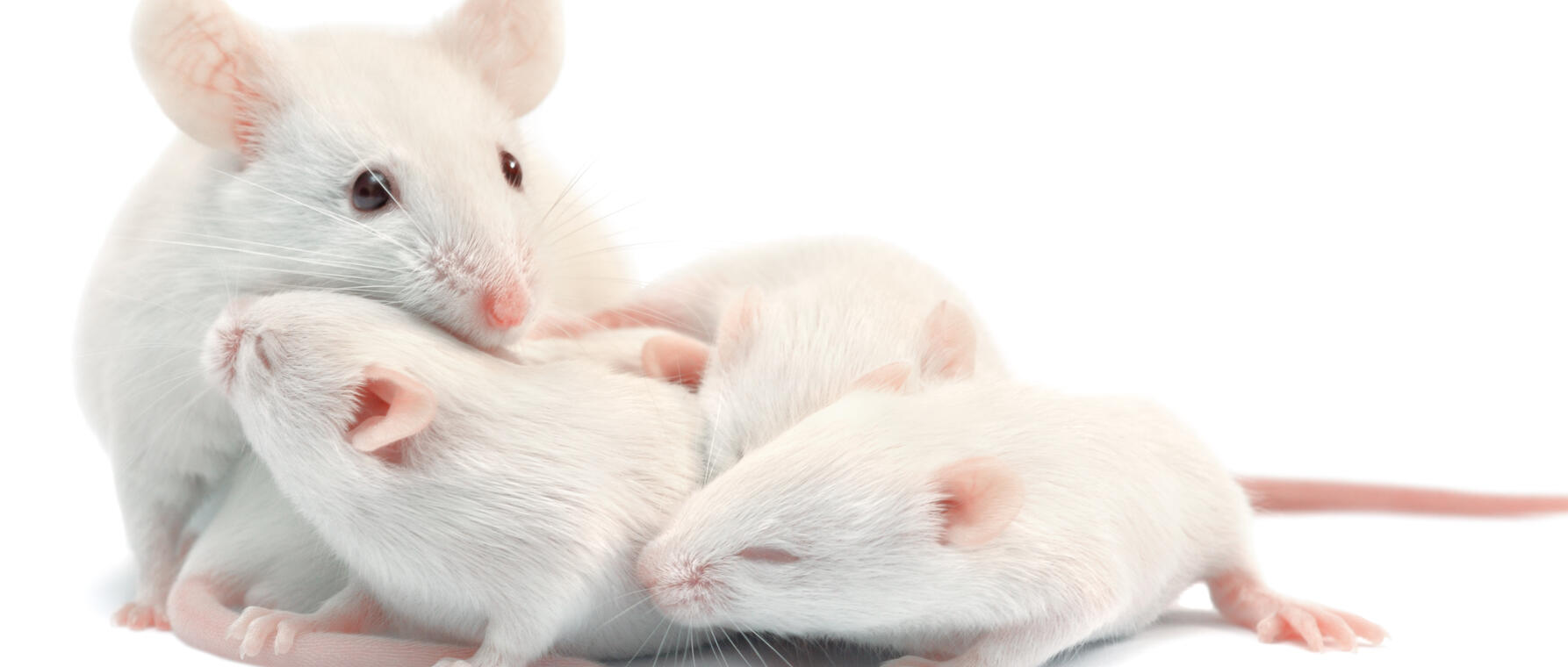
Research at Risk: Since World War II, universities have worked with the federal government to create an innovation ecosystem that has yielded life-changing progress. Now much of that work may be halted as funding is withdrawn. Find out more about the threats to medical, engineering, and scientific research, as well as how Harvard is fighting to preserve this work—and the University's core values.
Ya’el Courtney is a PhD student in neuroscience who works in the lab of Maria Lehtinen, the Hannah C. Kinney MD Chair in Pediatric Pathology Research at Boston Children's Hospital and a professor at Harvard Medical School. Courtney discusses her research on embryonic brain development in mice, the importance of reproductive research, and the lasting friendships she’s built at Harvard Griffin GSAS.
Disruptive Innovation
My mentor, Professor Maria Lehtinen, discovered that cerebrospinal fluid carries signals to help the brain of a fetus form during pregnancy. I build on her research in my work with mice to understand what might disrupt that signaling and the effect it might have on the development of a baby’s brain.
Much of my work has centered around a serotonin receptor, which, when activated, can interfere with signaling through cerebrospinal fluid and hinder brain development. Mouse and human brains develop similarly so what disrupts the process in them may also disrupt it in us.
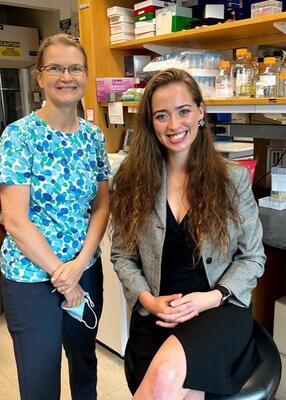
When I expose pregnant mice to a drug that activates the serotonin receptor, I see an imbalance of neurons in their offspring compared to those of mice that weren’t exposed. I also see different social behaviors. For example, when we bring a new mouse into the company of a normal one, the normal mouse likes to spend time with its new companion. Those exposed to the drug that activates a serotonin receptor spend much less time with a new mouse. It’s unclear whether this is anxiety or if exposed mice are simply less interested in company, but they are not engaging in standard social behavior.
This is an important finding. There are autism and epilepsy medications in clinical trials that activate this serotonin receptor. So do psychedelics. Many people are excited about the possibilities of using psychedelics to treat mental illnesses so we need to know whether they would be safe for pregnant people and their babies.
Mending the Maternity Health Gap
When I started my PhD, I was looking for mentorship and the chance to study neuroscience. I met Professor Maria Lehtinen, worked with her for a few months, and eventually joined her lab because she was an incredible mentor and she studied embryonic brain development.
I initially wanted to understand what controls signaling in cerebrospinal fluid. How do the signals get there? What could interfere with them? I started to read scientific papers and got interested in the impact of maternal-fetal interaction.
Historically, reproductive health is an understudied area. Female mice were rarely used in scientific research because they had a menstrual cycle and their hormones made it hard to interpret findings. In 2016, the National Institutes of Health mandated that every study with mice that it funds must use females unless there’s a good reason not to. Ten years is not a long time in science, which means that a lot of the drugs out there today had their first tests in exclusively male mice.
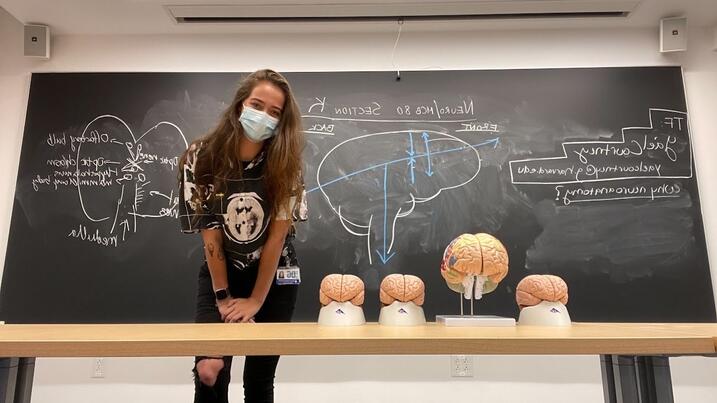
COVID Connections
I started my PhD right before the COVID-19 pandemic. I got to meet a bunch of current students during my interview process, and my first impression was that they all seemed very happy and were friends with one another.
When I moved to Boston, I shared an apartment with a few other first-year students in my program. The pandemic hit and we got really close during the shutdown. We would all migrate out of our rooms in the evening often to share communal meals and watch the animated series Avatar: The Last Airbender on Netflix together.
I think in 20 years, a lot of people in my cohort will be scientific leaders, whether in academia or industry, and we will all be friends. Right now, I’m thankful that the program in neuroscience has enabled me to be part of this community and has fostered such meaningful connections.
Get the Latest Updates
Join Our Newsletter
Subscribe to Colloquy Podcast
Simplecast


